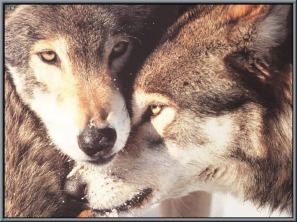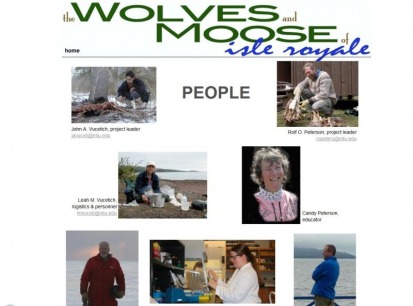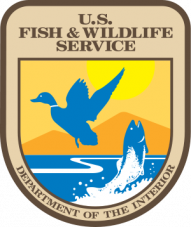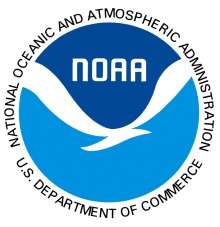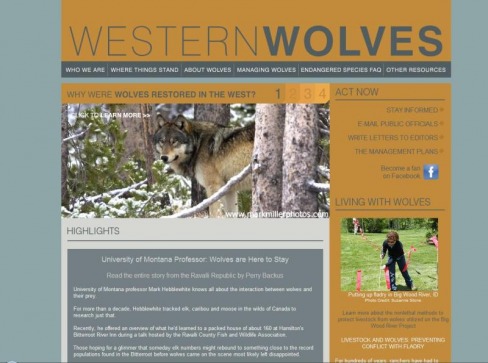Wolf Management
Middle Men
In between opposed groups of actors lie the more impartial parties that include scientists, researchers and federal agencies such as the U.S. Fish and Wildlife Service and the National Oceanic and Atmospheric Administration, the two bureaucracies that carry out the edicts of the Endangered Species Act. Most of these actors do not have goals that relate directly to the wolf, such as listing or delisting the species, but instead work to produce scientific fact or carry out the requirements of the Endangered Species Act. There is also one conservation organization that effectively straddles both sides of the controversy well enough that it can be considered a moderate party.
These actors have separate but similar influences on the development of the controversy. Scientists and researchers create the data around which knowledge is created and policy is structured. The federal agencies implement the provisions that policy provides and create management strategies within the framework of the Endangered Species Act for each listed species. The Western Wolf Coalition is one organization that actually attempts to bring together actors from both sides of the controversy and to settle the dispute in a way that is agreeable for all parties and beneficial for the wolf and the ecosystem in which it lives.
These actors have separate but similar influences on the development of the controversy. Scientists and researchers create the data around which knowledge is created and policy is structured. The federal agencies implement the provisions that policy provides and create management strategies within the framework of the Endangered Species Act for each listed species. The Western Wolf Coalition is one organization that actually attempts to bring together actors from both sides of the controversy and to settle the dispute in a way that is agreeable for all parties and beneficial for the wolf and the ecosystem in which it lives.
Scientists and Researchers
The scientists and researchers who study wolf populations do not have goals or opinions regarding whether or not the wolf should be protected. To them, the wolf is the object of their research and part of their occupation, but in general, they do not represent a party that is for or against wolf protection. Researchers are integral to the controversy, however, not because of their opinions but because they generate the data upon which knowledge about wolf populations is created. If they say that wolf populations do not need protection and can sustain legalized hunting, policy will be written to delist the wolf and allow hunting. If researchers find that protection is necessary for healthy wolf populations, the wolf will remain listed under the Endangered Species Act. Their findings and analysis are the scientific basis upon which all other actors can base their claims about the wolf, and so their part in the controversy is very important.
Federal Agencies
The federal bureaucracies that determine whether or not a species should be listed as endangered and implement management strategies accordingly are the U.S. Fish and Wildlife Service (FWS) and the National Oceanographic and Atmospheric Administration (NOAA). These agencies make impartial decisions regarding the status of species as endangered, threatened or not endangered, and enforce regulations that apply to listed species. Organizations that support wolf protection sue FWS and NOAA in order to challenge a decision regarding the listing of a particular species. When the wolf was delisted in parts of the United States, management of the species was handed over to the state agencies that then determined whether or not wolf hunting should be made legal.
Conservation Compromise
The Western Wolf Coalition is one of the most interesting organizations involved in the wolf controversy due to its very centralist position regarding wolf protection. There are a number of international conservation organizations that belong to the Coalition, including Defenders of Wildlife, the Sierra Club and many others, but this greater Coalition is much more neutral than any of those organizations are individually. The Coalition recognizes that the wolf is a valuable and significant species for dozens of reasons, yet also acknowledges the challenges that wolf populations can impose upon local residents including ranchers and farmers. It stresses the importance of basing population management strategies upon sound science that also takes into consideration the social issues surrounding the wolf. Some of the conservation organizations that belong to the Coalition work with ranchers and farmers to "assist livestock owners with methods and tools to help reduce losses while state compensation programs compensate ranchers for the low level of loss that occurs" (Western Wildlife Coalition Website). The Coalition has an extremely optimistic outlook about the future of wolves, both ecologically and interacting with humans, and works toward creating a positive, sustainable future for both wolves and the people that live around them.
